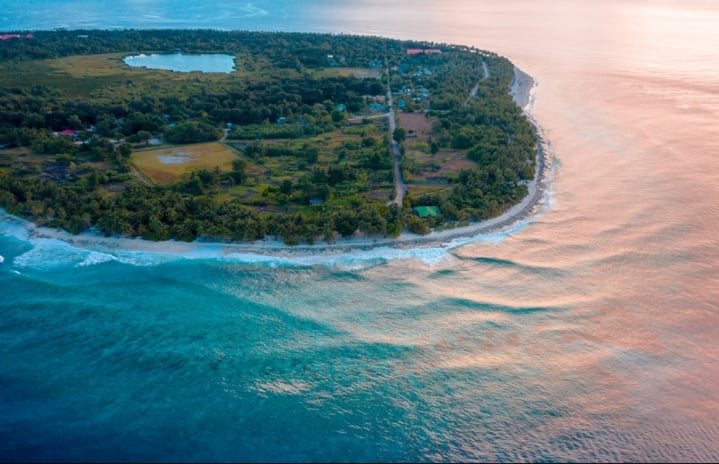The Auditor General's Office (AGO) had previously highlighted major issues
within the water and sewerage system installed in Fuvahmulah City. As the
contamination of the water supply provided by Fenaka has become a major crisis
today, the performance audit report published in 2023 reveals critical issues
that needed resolution. The report was publicized at the time, and relevant
parties were instructed to rectify the problems.
The performance audit, released in July 2023, was conducted to assess the effectiveness
of the system established to solve Fuvahmulah's water and sewerage issues. The
report stated that the quality of water supplied by the city's water system was
very poor even then.
According to the report:
- Coliform Bacteria Found: Water samples taken during the audit period contained traces of Coliform, a bacteria indicating contamination, possibly by feces or other foreign matter.
- Insufficient Chlorination: The samples taken from Fuvahmulah had insufficient levels of chlorine, a chemical required to eliminate such contaminants in the water.
"...Therefore, this office has instructed Fenaka Corporation and all
relevant authorities to take immediate action regarding this matter," the
two-year-old audit report stated.
The report also noted that when the Audit Office instructed Fenaka to test
the water in 2022, Fenaka's tests did not include checks for Coliform levels.
Furthermore, even though issues with the Fuvahmulah water system were reported
to the Regulatory Authority at the time, the Authority failed to take any
action.
Insufficient residual chlorine
The AGO report specifically highlighted the issue of inadequate residual
chlorine, citing the World Health Organization's (WHO) "Principles and
Practices of Drinking Water Chlorination," which states that an adequate
level of residual chlorine is essential to prevent contamination during storage
and supply.
"...However, we note that the chlorine level in the water produced and
supplied by the water system established in Fuvahmulah City was 0.02 mg per
liter, which is less than the national and international standard for residual
chlorine specified in the table below," stated the performance audit
report on Fuvahmulah's water and sewerage system.
The Audit Office noted that even though reports sent to the Utility
Regulatory Authority showed that the residual chlorine was below the required
standard, the Authority did not take any action.
"...We note that the lack of residual chlorine in the supplied water is
a cause for contamination."
Water leaking into the ground
Citing Fenaka Corporation, the audit report noted that 70% of the water
produced by Fuvahmulah's water system was leaking into the ground. Although
efforts were made to improve this, the ratio was only reduced to 44% by 2019.
"...Thus, during the period from January 2021 to February 2022, 125,767
cubic meters of water were produced, of which 45,797 cubic meters were billed.
Therefore, we note that 79,856 cubic meters (79,856,961 liters) of water leaked,
resulting in a non-billed financial loss of MVR 4,132,146 to Fenaka," the
report detailed.
The AGO report warned that this extensive leakage not only caused financial
losses to Fenaka but also posed a risk of contaminating the water supply in
Fuvahmulah. Since the water pipes are buried underground, there is a risk of
germs entering the system through leakage areas.
"As the water system pipes are buried underground, failure to detect
leaks for long periods poses a risk of germs entering the water system through
the leakage areas," the audit report concluded.
The report also mentioned similar major issues existed within the Fuvahmulah
sewerage system.
The recent crisis led to the Fuvahmulah City
Council shutting down the water supply across the city last Monday to clean the
water network due to the contamination. Although the supply was restored by
noon yesterday, the Council has urged residents not to use the water until sample
results are received to confirm its safety.




